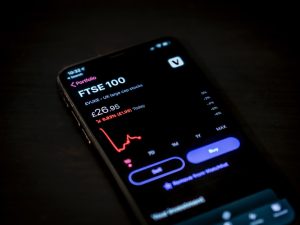Comparing the Risks and Rewards of Forex and Stock Trading
When it comes to investing, there are numerous options available to individuals looking to grow their wealth. Two popular choices are forex trading and stock trading. Both offer potential rewards, but they also come with their own set of risks. In this article, we will compare the risks and rewards of forex and stock trading, helping you make an informed decision based on your investment goals and risk tolerance.
Forex Trading:
Forex, short for foreign exchange, is the decentralized global market where currencies are traded. It involves buying one currency while simultaneously selling another. The forex market operates 24 hours a day, five days a week, providing ample trading opportunities for investors.
One of the key advantages of forex trading is its high liquidity. With a daily trading volume of around $6.6 trillion, forex is the largest financial market in the world. This means that traders can enter and exit positions quickly, minimizing the risk of being stuck in a trade.
Another advantage of forex trading is the ability to trade on margin. This allows traders to control larger positions with a smaller initial investment. However, it is important to note that trading on margin amplifies both profits and losses, making it a double-edged sword. While it can lead to significant gains, it can also result in substantial losses if not managed properly.
Forex trading also offers a wide range of currency pairs to trade. This allows investors to diversify their portfolios and take advantage of different economic conditions around the world. However, it is essential to stay updated with global events and economic indicators that can significantly impact currency values.
The risks associated with forex trading include volatility and leverage. The forex market is highly volatile, with exchange rates constantly fluctuating. This volatility can lead to rapid price movements, creating both opportunities and risks. Additionally, leverage can magnify losses, especially for inexperienced traders who may underestimate the potential downside.
Stock Trading:
Stock trading involves buying and selling shares of individual companies listed on stock exchanges. Investors can profit from stock trading through capital appreciation (the increase in the stock price) and dividend payments.
One of the main advantages of stock trading is the potential for long-term growth. Successful stock investing allows individuals to benefit from the growth and profitability of the underlying companies. Moreover, dividends can provide a steady stream of income, especially from established companies with a history of regular dividend payments.
Investing in stocks also allows individuals to become partial owners of the companies they invest in. This means that shareholders have voting rights and can participate in corporate decision-making processes, such as electing board members.
However, stock trading also comes with its own set of risks. One of the primary risks is market volatility. Stock prices can be influenced by a wide range of factors, including economic conditions, company performance, and market sentiment. This volatility can lead to significant price swings and potential losses if not carefully managed.
Another risk associated with stock trading is individual company risk. Unlike forex trading, where investors can diversify their portfolios across different currency pairs, stock trading requires careful selection of individual companies to invest in. If a company experiences financial difficulties or faces regulatory issues, the stock price can plummet, resulting in substantial losses for investors.
Comparing the Risks and Rewards:
Both forex and stock trading offer potential rewards, but they also come with their own set of risks. Forex trading offers high liquidity, the ability to trade on margin, and a wide range of currency pairs. However, it is highly volatile, and trading on margin can amplify losses.
On the other hand, stock trading allows individuals to benefit from long-term growth and dividend payments. Investors can become partial owners of the companies they invest in and participate in corporate decision-making processes. However, stock prices are influenced by market volatility and individual company risks.
Ultimately, the choice between forex and stock trading depends on your investment goals and risk tolerance. If you are comfortable with high volatility and want to take advantage of global economic conditions, forex trading may be suitable for you. If you prefer long-term growth and want to invest in specific companies, stock trading may be a better option.
Regardless of your choice, it is crucial to educate yourself, develop a solid trading strategy, and practice risk management to maximize your potential rewards while minimizing the risks involved in trading.






